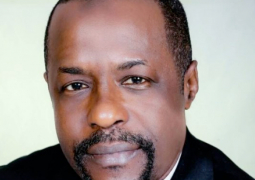So far there are numerous unknowns as vital agreements relied upon over the past decades are yet to be drawn up or clearly defined for the future. Also, significant details of the deal and how it will affect such migrants are not known despite all the speculations, assumptions and suppositions by individuals and other professionals.
During hours leading to the New Year, a last-minute trade agreement was eventually struck between London and Brussels. However, what remains to be clarified is the status of migrants.
Nevertheless, what is certain is that the British government is no longer fascinated with such previous agreements described as ‘‘expired’’ by prominent so called Brexiters. Instead, London will negotiate ‘‘bilateral agreements’’ with individual countries which several commentators described as a ‘‘daunting and difficult’’ task.
Furthermore, British law will therefore eventually replace the Dublin Accord rule on Family Reunions which hundreds of Senegambians relied upon to be joined by their family members.
Thus, with the new status quo, it is anticipated that such unions will become more challenging for them.
Another important matter is that the Dublin III Regulation which firmly establishes which European nation is responsible for examining an asylum request will no longer be applicable in the UK. Some even suggested that it is now ‘‘null and void’’
Conversely, with Brexit, Dublin III will be replaced with an ‘‘unknown’’ new accord between the UK and the EU prompting Senegambians asking several unanswered or poorly answered questions.
Karim Sanneh, an affected Gambian told the Point that he had contacted several people for help but to no avail. Recounting his experience to this correspondent, he said: ‘‘These are important matters but all I get is vague or ambiguous response…sometimes unprofessional reaction and gossip via WhatsApp’’.
Also, the Dublin III which permitted asylum seekers to apply for protection in the UK will be altered. Previously it allowed people to reunite with a spouse or a child regardless of whether that person was a British citizen, resident, refugee or an asylum seeker.
Under the same Accord, unaccompanied minors were also tolerable to enter the UK if they could show with evidence that they were reuniting with a parent or other family members in the country.
Nowadays, unaccompanied minors will only be able to reunite with parents.
An official familiar with the new rules responding to the Point’s Inquiries said: ''Clearly, under UK law, the rules on Family Reunion will be reformed and the UK will only grant Family Unions to specific people such as the person already living as refugee’’.
But ‘‘low skilled migrants’’ will also be hit hard as it is expected that their status will become harder for them to be granted entry into the UK.
Another hidden category of people not mentioned are those seeking medical treatment or assistance. A cancer patient known to this correspondent who is receiving treatment and support in the UK said: ‘‘I am not sure what will happen next…I may not be allowed to continue my medical treatment…I may no longer be eligible’’.
It is worth noting that despite the anticipations, the divorce between the EU and UK may not change the circumstance that Britain remains a signatory to the 1951 Convention- so far, the treaty pertaining to the Status of refugee baring deportation to a country where the person’s life or freedom is under threat is still respected.
Read Other Articles In Headlines
FPAC raises red flag over drugs safety, assets and funds at BMCH
Jul 4, 2025, 11:21 AM




